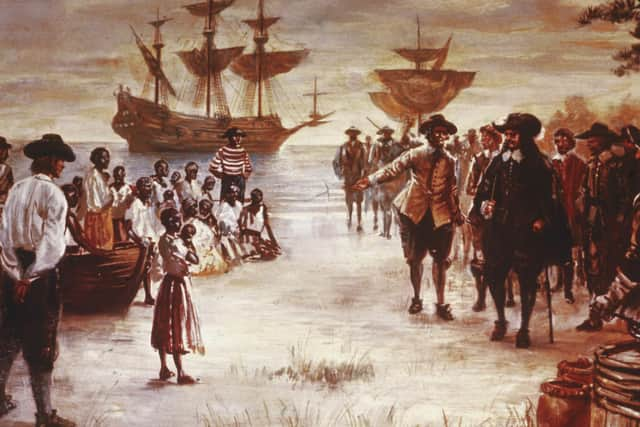Scots were not victims of the slave trade, but they did help perpetrate it – Kenny MacAskill
A debate’s running on whether Scots prisoners were once transported into slavery or sent to penal servitude. All the historical evidence shows it to have been the latter and that conflating the two is both factually wrong and in danger of downplaying the heinous trade, and Scotland’s role in it.
That’s not to say that penal servitude was benign as, for many, being sent to the West Indies proved to be a death sentence, and other places could be equally harsh and unforgiving. But that was still vastly different from the chattel slavery imposed upon millions of Africans. Even the worst journeys on “coffin ships” for captured soldiers were as nothing compared to the suffering of men, women and children cast into slavery – endured not just during their lifetimes, if they survived the horrendous voyages, but down through generations.
Advertisement
Hide AdAdvertisement
Hide AdThere’s a book in the National Library of Scotland that narrates what happened to Scots prisoners of the ’45. I recall reading it when researching for a book I was considering writing about Scots who were transported, rather than emigrating, whether Covenanter, Jacobite or Radical. I was intrigued that English Jacobites were treated more harshly than their Scottish brethren, the Scots being viewed as rebels, but English Jacobites as traitors.


The book narrates the fate of Scots prisoners, whether executed or sent to penal servitude for a period, often seven years, with fate dictating whether it was the West Indies or America. There they worked until the end of their sentence, its nature varying as with destination.
Hanoverians weren’t the only ones to transport prisoners to that fate. Even before the Union, some Covenanters faced a similar sentence imposed by their own parliament. But, the worst was undoubtedly Cromwell, a man of innate cruelty, whose treatment of Scots was only surpassed by his viciousness towards the Irish. After the debacle of the Battle of Dunbar in 1650, captured Scots soldiers found themselves on a death march to Durham and then cast around the globe, to be joined the following year by compatriots after defeat at Worcester.
Some were sent to the West Indies, others to America, whilst others still were sent to help drain the Fen Country in East England, explaining Scots names in those parts down over the centuries. The supposed “Lord Protector” even sought to give some to Venice for use in their war with the Ottoman Empire over Crete, although the Venetians politely declined.
For those transported, it no doubt wasn’t easy and tropical diseases took a high toll. But evidence from there and especially America confirms it was servitude, not slavery. There’s a society in Boston that was formed in 1657 as the Scots Society of Massachusetts. The date marked the end of their servitude and, with no way home, they banded together for mutual support. That organisation still exists and, whilst life wasn’t easy, it was never slavery, and some prospered.
Further confirmations can be found from the Scots Prisoners of War Society, where descendants of those American prisoners, rather than any Colditz veterans, seek to share tales and information. Some did remarkably well, others, especially in the Indies, not so. But it was never the barbarity or industrialised cruelty of slavery, and conflating it’s wrong.
Kenny MacAskill is Alba Party MP for East Lothian
Comments
Want to join the conversation? Please or to comment on this article.
